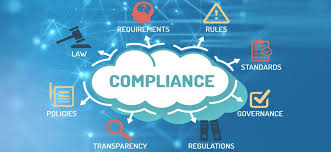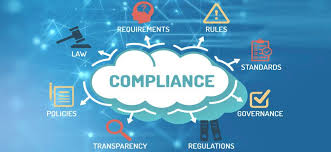


Harness Cloud Computing Regulations with Confidence: The Essential Blueprint to Unbreakable Compliance and Security in the Digital Era
Introduction
Cloud Computing Regulations And Compliance;
Cloud computing has revolutionized how businesses manage and store data, offering scalability, flexibility, and cost-efficiency. However, as organizations increasingly rely on cloud services, regulatory frameworks play a crucial role in ensuring data protection, privacy, and security. This article explores the landscape of cloud computing regulations, their implications for businesses and consumers, and best practices for compliance in an evolving digital environment.
In the rapidly evolving digital era, enterprises are racing to adopt cloud infrastructure for its unparalleled scalability, agility, and cost efficiency. Cloud computing offers the promise of on-demand resources, global availability, and elastic capacity that can transform business operations overnight. Yet this potential is accompanied by an increasingly complex patchwork of regulations designed to protect data privacy, maintain sovereignty, and ensure national security. Navigating cloud computing regulations demands strategic foresight, legal acumen, and technical expertise to ensure that sensitive information remains secure and compliant across jurisdictions. A misstep can result in significant fines, reputational damage, and operational disruption, underscoring why a proactive approach to regulatory alignment is now a business imperative rather than a legal afterthought.
Across the globe, a myriad of regulatory frameworks governs the use, storage, and transfer of data in cloud environments. The European Union’s General Data Protection Regulation (GDPR) imposes strict consent requirements and heavy penalties for personal data breaches, while the United States enforces sector-specific rules like HIPAA for healthcare and CCPA for consumer privacy. I
n Nigeria, the Nigeria Data Protection Regulation (NDPR) sets robust standards for data controllers and processors operating within or targeting Nigerian citizens. Financial institutions must contend with PCI DSS standards for payment security, and multinational enterprises often find themselves simultaneously subject to multiple, sometimes conflicting, obligations. Understanding how these laws overlap and diverge is the first step toward building a compliance strategy that is both comprehensive and coherent.
Compliance with these regulations is inseparable from a strong security posture. Major cloud service providers follow a shared-responsibility model in which they secure the underlying infrastructure, but customers retain accountability for protecting data, managing identities, and securing configurations. This division of labor highlights why regulatory compliance and cybersecurity must be pursued in tandem.
Encryption of data at rest and in transit, multi-factor authentication, zero-trust network architectures, and continuous vulnerability management are no longer optional—they are fundamental components of any compliance roadmap. By embedding security best practices into every layer of your cloud operations, you create a resilient environment that can withstand audits, repel threats, and maintain uninterrupted business continuity.
A thorough risk assessment lays the foundation for compliance success. Begin by cataloging all cloud-hosted assets, classifying data according to sensitivity, and mapping each workload to the applicable regulatory requirements. Identify gaps in existing controls and prioritize remediation efforts based on the potential impact of non-compliance. Data governance policies should then be drafted to codify standards for encryption, data retention, data classification, and breach notification. These policies must be clear, actionable, and regularly reviewed, ensuring that they evolve alongside changes in regulations, business needs, and emerging threat vectors.
Human factors play a critical role in sustaining compliance. Employees across development, operations, and legal functions must be trained to recognize their responsibilities and the procedures they must follow. Phishing simulations, tabletop exercises for incident response, and periodic compliance workshops help reinforce best practices and foster a culture of accountability. When every team member understands how their actions can influence regulatory outcomes, organizations become better equipped to detect anomalies, report incidents promptly, and implement corrective measures before violations occur.
Technology in the form of automation and orchestration tools can dramatically streamline compliance efforts. Cloud-native services and third-party platforms offer policy-as-code frameworks that automatically enforce configuration standards, generate audit logs, and produce compliance reports on demand. Automated scans can detect misconfigurations—such as open storage buckets or overly permissive access policies—and remediate them in real time. Dashboards aggregate metrics on compliance posture, enabling continuous monitoring and rapid identification of drift from established baselines. By automating repetitive tasks and codifying expert knowledge into toolchains, organizations reduce human error, accelerate audit cycles, and maintain a state of constant readiness.
Cross-border data transfers introduce additional complexity. Mechanisms such as Standard Contractual Clauses, Binding Corporate Rules, and approved adequacy decisions govern how personal data can move between jurisdictions. Organizations must carefully select data centers or regions for storage and processing, weighing factors like legal precedent, latency, and cost. In some cases, implementing data localization—storing and processing data exclusively within a specific country’s borders—may be necessary to satisfy local regulators. Designing your architecture with regional controls and encryption key management solutions ensures that you remain compliant while still benefiting from cloud agility.
Regulatory landscapes are dynamic, with new rules and guidance emerging as technology evolves and threats mutate. A robust compliance program embraces continuous improvement: schedule regular third-party audits, update risk assessments after significant architectural changes, and maintain open communication channels with legal advisors and cloud providers. By fostering an environment where compliance is viewed not as a checkbox but as a strategic asset, organizations can adapt quickly to new mandates, reassure stakeholders, and leverage regulatory requirements as catalysts for stronger security, greater transparency, and sustainable innovation in the digital era.
Understanding Cloud Computing Regulations
Cloud computing regulations encompass legal frameworks and standards governing the use, storage, and transmission of data hosted on cloud platforms. These regulations aim to protect consumer rights, ensure data privacy, promote transparency in data handling practices, and mitigate risks associated with cloud-based services. Key regulatory aspects include data sovereignty, security standards, data breach notification requirements, and compliance with industry-specific regulations.
Importance of Cloud Computing Regulations
. Data Protection and Privacy: Regulations such as the General Data Protection Regulation (GDPR) in the European Union and the California Consumer Privacy Act (CCPA) in the United States establish strict guidelines for protecting personal data stored in the cloud. Compliance with these regulations is essential to safeguard consumer privacy rights and avoid regulatory penalties.
- Security Standards: Regulatory frameworks require cloud service providers (CSPs) to implement robust security measures to protect data against unauthorized access, data breaches, and cyber attacks. Standards such as ISO/IEC 27001 and SOC 2 certification ensure that CSPs adhere to industry-recognized security best practices.
- Compliance Requirements: Industries such as healthcare (under HIPAA), finance (under PCI DSS), and government (under FedRAMP) have specific regulatory requirements for storing and managing sensitive data in the cloud. Compliance with these regulations is mandatory for organizations operating within these sectors to mitigate legal risks and maintain trust with stakeholders.
Key Components of Cloud Computing Regulations
- Data Location and Sovereignty: Some regulations require that certain types of data must be stored within specific geographic regions or jurisdictions to comply with local laws and regulations. Data sovereignty laws ensure that data subjects’ rights are protected according to their respective legal jurisdictions.
- Data Breach Notification: Regulations mandate that CSPs promptly notify customers and regulatory authorities in the event of a data breach affecting sensitive information stored in the cloud. Timely notification enables affected parties to take mitigating actions and enhances transparency in data breach incidents.
- Contractual Obligations: Organizations using cloud services must negotiate contracts with CSPs that clearly define data handling practices, security responsibilities, compliance requirements, and mechanisms for auditing and monitoring adherence to contractual terms.
Compliance Challenges and Best Practices
- Complexity of Multi-Jurisdictional Compliance: Organizations operating globally must navigate diverse regulatory landscapes and varying data protection requirements across different jurisdictions. Conducting thorough legal assessments and engaging legal counsel can help ensure comprehensive compliance with applicable regulations.
- Vendor Management: Organizations should conduct due diligence when selecting CSPs to ensure they meet regulatory requirements and adhere to security standards. Establishing contractual agreements that address data protection, privacy, security, and compliance obligations is essential for managing vendor relationships effectively.
- Continuous Monitoring and Auditing: Implementing regular audits, security assessments, and compliance monitoring programs helps organizations identify vulnerabilities, assess risk exposure, and maintain ongoing compliance with evolving regulatory requirements.
Case Studies: Compliance in Practice
- Healthcare Provider Adhering to HIPAA: Implemented a cloud computing strategy that aligns with HIPAA regulations governing the storage and transmission of protected health information (PHI). Engaged HIPAA-compliant CSPs and implemented encryption and access controls to safeguard patient data in the cloud.
- Financial Institution Meeting PCI DSS Standards: Implemented PCI DSS-compliant cloud solutions to securely process, store, and transmit payment card information. Adhered to stringent security controls, conducted regular audits, and maintained PCI DSS compliance to protect sensitive financial data.
Conclusion
In conclusion, navigating cloud computing regulations is essential for organizations to mitigate risks, protect data privacy, and maintain regulatory compliance in an increasingly digital and interconnected world. By adhering to data protection standards, implementing robust security measures, and engaging in proactive compliance efforts, organizations can leverage the benefits of cloud computing while safeguarding sensitive information and maintaining trust with stakeholders. As regulatory landscapes evolve, ongoing vigilance, adaptation to regulatory changes, and collaborative efforts across sectors will be crucial in fostering a secure and compliant environment for cloud-based operations.
Successfully navigating cloud computing regulations requires more than a one-time effort; it demands an enduring commitment that weaves legal, technical, and organizational disciplines into the fabric of your cloud strategy. In today’s global marketplace, regulatory frameworks such as GDPR, HIPAA, CCPA, NDPR, and PCI DSS will continue to expand and evolve, reflecting society’s imperative to safeguard sensitive data and maintain public trust. By embracing these regulations as guides rather than obstacles, you position your organization to outpace competitors, avoid costly penalties, and build a reputation for reliability and security.
Central to this endeavor is a comprehensive governance model that maps each workload to its specific regulatory requirements and prescribes clear policies for data classification, encryption, retention, and breach response. Automating policy enforcement through infrastructure-as-code, compliance-as-code, and continuous monitoring tools ensures that configurations remain aligned with organizational standards, even as cloud environments scale and morph. Automation not only accelerates audit preparation but also minimizes the risk of manual oversights, delivering both efficiency gains and peace of mind.
Equally important is the integration of security best practices into every stage of the development and deployment lifecycle. Employ identity-centric access management, enforce least-privilege permissions, and adopt zero-trust principles to reduce the attack surface and limit the blast radius of potential breaches. Runtime threat detection and real-time alerting enable rapid identification and containment of incidents, aligning your capabilities with regulatory timelines for breach notification. Coupling these controls with detailed audit trails and forensics readiness demonstrates due diligence and ensures that you can provide regulators with timely, accurate evidence.
Organizational culture is the linchpin that binds policy and technology together. Regular training programs, executive sponsorship, and cross-functional collaboration foster an environment where compliance and security are shared responsibilities rather than siloed mandates. Tabletop exercises help teams rehearse their responses to hypothetical scenarios, refine communication protocols, and identify latent gaps in incident management. When everyone from the C-suite to frontline developers appreciates the stakes of regulatory breaches, organizations become more agile, transparent, and resilient.
As cloud adoption accelerates, emerging trends such as artificial intelligence governance, data portability, and privacy-enhancing technologies will introduce new regulatory dimensions. Staying ahead of these developments requires proactive horizon scanning, participation in industry forums, and ongoing dialogue with cloud service providers and legal experts. By embedding continuous improvement into your compliance framework, you can adapt swiftly to novel requirements, incorporate cutting-edge security controls, and maintain uninterrupted innovation.
In essence, compliance and security form a virtuous cycle. Rigorous regulatory adherence drives the adoption of robust security architectures, and a strong security posture, in turn, simplifies compliance. Organizations that recognize this symbiosis will transform cloud computing regulations from potential roadblocks into strategic levers for building trust, reducing risk, and driving market differentiation. The strategies outlined in this guide—risk assessment, policy codification, automation, culture building, and continuous monitoring—offer a clear blueprint for success.
Now is the time to act. Conduct a thorough audit of your cloud environments, identify any lingering compliance gaps, and deploy automated controls to enforce best practices at scale. Invest in training and foster a culture where compliance and security are intrinsic values. Engage with legal and technical experts to monitor regulatory changes, and refine your approach as new rules emerge. By doing so, you will not only meet today’s demanding standards but also establish a future-ready foundation capable of supporting innovation, protecting your most valuable assets, and reinforcing stakeholder confidence in the digital era.
· Cloud Computing Regulations
· Data Protection and Privacy
· Compliance Requirements
· Security Standards
· Data Sovereignty
· Data Breach Notification
· Regulatory Compliance
· GDPR Compliance
· CCPA Compliance
· HIPAA Compliance
· Multi-Jurisdictional Compliance
· Vendor Management
· Continuous Monitoring
· Cybersecurity Standards
· Cloud Service Providers (CSPs)
Contact Us
Chaman Law Firm today. Our offices are conveniently located in Lagos, FCT Abuja, Ogun State, and the UK. We are readily available to assist you with your legal needs. Whether you require consultation, representation, or ongoing legal support, Chaman Law Firm is your trusted partner.
Call us at 08065553671 or email us at info@chamanlawfirm.com to schedule a consultation.


